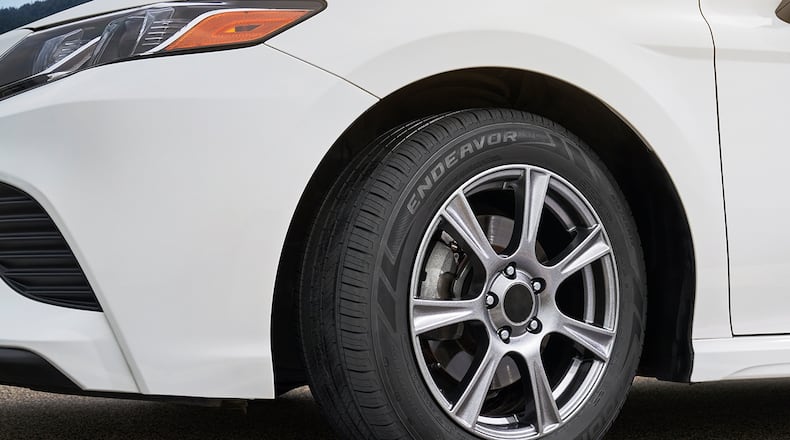I took it on the highway, and it shook something terrible once I got to 60 mph. I went back to the place, and they took off the left front wheel, spun it on the high-speed tire balancer and said it was bent. They said they couldn’t have eyeballed that when they gave me the estimate, which I believe. But they also said spinning the wheel to find out if it’s bent is not part of the process.
I asked how it cannot be part of the process when they knew I was in a front-end collision and they had the front wheels off anyway to do the struts and control arm?
Should they have checked for a bent wheel as a matter of course? I say yes; they said no. Who’s right? -- Eric
RAY: Their mistake wasn’t failing to remove the front wheel to see if it was bent, Eric. Their mistake was not test-driving the car before giving it back to you.
After any repair -- especially one that involves steering, suspension, wheels or tires -- we always take the repaired car out for a test drive. In fact, we’ve got a pile of speeding tickets because the limit on the road closest to the garage is 40 mph, and we make sure we test the cars at highway speed, too, before giving them back to the customer.
Had they done a proper test drive, they would have felt the car start to shake at 60 mph and would have known instantly that there was more work to do.
A shimmy that reliably occurs at a certain speed is often a sign of a bad or unbalanced tire or a bent wheel. And they would have saved themselves considerable embarrassment by returning to the garage and finding the cause of the shaking before calling you and saying “It’s all set, Eric!”
In effect, they made you the test driver. That’s not cool.
So yes, they made a mistake in missing the bent wheel at first. But that’s an understandable mistake. I could have easily done that.
But failing to test-drive it -- to make sure it didn’t drive like one of those old vibrating motel beds -- that was their real mistake.
When it comes to vehicles, prepare to pay for hype
Dear Car Talk:
My question is, why is a pickup truck so much more money than a car when half the car is missing?
They seem way overpriced to me. Why? Thanks. -- Marie
RAY: Great question, Marie. There was a time when pickup trucks were cheaper than cars. They were considered bare-bones work vehicles, designed to get dirty and haul stuff, and not much more.
And they were priced accordingly. They had certain capabilities that cars didn’t have -- like the ability to carry a lot of weight and, sometimes, four-wheel drive.
But they were also missing lots of amenities that cars had -- like a comfortable ride, convenience items and certain safety features.
Well, as pickup trucks became trendy -- as fewer people actually used them for work and more people wanted to appear to be doing work -- the manufacturers discovered that if they loaded those trucks up with carlike amenities, they could sell them for ridiculous amounts of money.
And since companies are in business to make money, add amenities they did. They piled them on. And raised prices accordingly.
They did it mostly by attaching desirable options to higher trim versions of trucks.
So if you want a basic, two-door, low-end work truck, you can still get it for a pretty reasonable price. If you can find one on a lot.
But most people buying trucks now want them to be luxury, image-enhancing vehicles. So, they option them up with fancy wheels, leather seats, 15-inch touchscreens, power tailgates and running boards, parking sensors, heated and cooled seats, and optional butt scratchers.
That means it’s not unusual for a well-equipped Ford, Chevy or Ram pickup truck to sell for $60,000-$70,000 now. Even without a roof out back.
And while a full-size pickup is bigger, more durable and has a heavier-duty suspension system than most cars, it doesn’t cost twice as much to make as a car. Nowhere close to that. So, the difference is really pure opportunistic mark-up. They cost so much because people are willing to pay that much for them.
The same is true for crossovers and SUVs. They’re very similar to cars in terms of how they’re made. But the body styles are in high demand now, so you pay considerably more for a Corolla Cross than you pay for a Corolla.
So, if you want a bargain, zag when everyone else is zigging. Buy a sedan now, when salesmen are eager to get rid of them. And when everybody gets sick of not being able to fit their full-size pickup trucks into their garages and paying $80 to fill them up with gas, pick up one on the cheap. Then you can pay $80 a tank.
Got a question about cars? Write to Ray in care of King Features, 628 Virginia Drive, Orlando, FL 32803, or email by visiting the Car Talk website at www.cartalk.com.
About the Author

